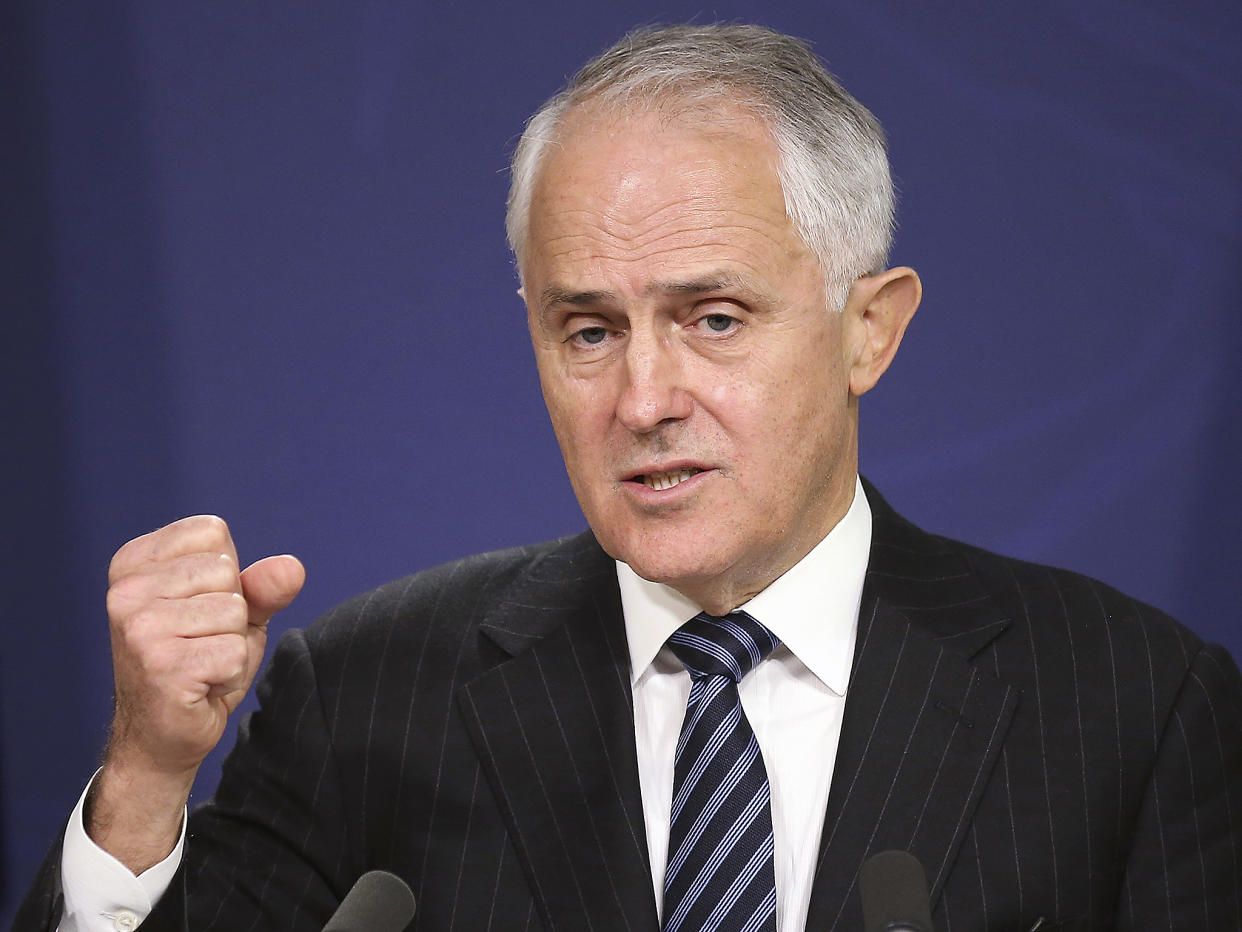Australian Prime Minister responds to Sean Spicer repeatedly mispronouncing his name

Australia’s Prime Minister has ruled out any deal to get the United States to honour an agreement to resettle hundreds of Muslim refugees.
Prime Minister Malcom Turnbull also dismissed a Nine Network television network journalist’s suggestion that he should be offended that White House spokesman Sean Spicer has repeatedly called him “Trumbull” in press briefings.
Mr Turnbull said: “The important thing is results.”
Mr Spicer said US President Donald Trump has agreed to honour an Obama administration deal to resettle up to 1,250 asylum seekers rejected by Australia. Mr Trump made the agreement during a conversation with Mr Turnbull last weekend, but has since tweeted: “I will study this dumb deal!”
Mr Turnbull said Mr Trump had asked for nothing in return for resettling the mostly Muslim refugees from Africa, the Middle East and Asia. Australia pays the impoverished Pacific countries of Nauru and Papua New Guinea to keep the refugees in camps.
“Absolutely not,” Mr Turnbull said. “It’s a deal obviously that President Trump has said he wouldn’t have entered into, but he has committed to honour it.”
Turnbull said there would be no link between the refugee resettlement and any future US request for military help in the Middle East or the South China Sea.
Australia is one of the largest contributors to the US-led military campaign in Iraq and Syria. Australia has also resisted US pressure to conduct freedom of navigation exercises close to artificial islands created by China in the contested South China Sea.
“We assess all requests for military assistance on their merits and there is no linkage at all between an arrangement relating to refugee resettlement and any other matters,” Mr Turnbull said.
The Obama administration agreed to resettle Australia’s refugees after Australia agreed in September last year to accept Costa Rican refugees fleeing drug wars.
AP

